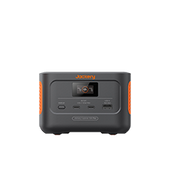Bush Farm wild camping is a great way to reconnect with nature on 200 acres of peaceful countryside in Saltash, Cornwall. This dog-friendly campground is ideal for families, couples, and individuals who prefer to camp alone. You may set up your tent wherever you choose, including in the woods, along a lake, or in an open field.
When you get there, you'll get a map and be free to explore at your own speed. It's a great place to reconnect with nature, as it's easily accessible from Plymouth and the rest of Cornwall. Nearby attractions include the Eden Project and Adrenaline Quarry. Enjoy peace, seclusion, and the authentic spirit of natural camping at Bush Farm.
|
Key Takeaways: |
|
Basics for Bush Farm Wild Camping
Bush Farm, near Saltash, is a warm and welcoming destination with easy access to Plymouth and the rest of Cornwall. It offers wild camping, allowing you to set up anywhere on the 200-acre farm, enabling you to enjoy maximum peace while fully immersing yourself in the camping experience.
Woodland walks, strolls through green fields, and waterside walks along rivers and lakes are all available here. The family-friendly location is perfect for taking children, especially those who enjoy the outdoors. When you arrive at our verdant and grassy area, you will be given a map and allowed to explore and settle anywhere you choose.
About The Site
Escape the crowds and retire to this tranquil wilderness located on a Cornish farm near Saltash. The property spans 200 acres and features numerous hidden glades, excellent wooded trails, and scenic spots along the river.
The farm's vast size ensures that you'll have plenty of privacy and space while camping here, and the map provided upon arrival shows you the many on-site camping spots.
Choose from the main camping area for tents and tourers, a location in the woods, or set up by the lake and take in the views along the River Lynher.
BBQs are permitted on-site, and reclaimed firewood is available for purchase, enabling you to start your campfire!
Dogs are welcome.
Facilities
The campsite features six bathrooms and six hot showers, which campers are welcome to use.
Saltash, a neighbouring settlement, features a grocery where you can purchase whatever you need during your visit. Canoeing is offered on the adjoining river.
Address
Bush Farm Wild Camping, Bush Farm, Hatt, Saltash, Cornwall, PL12 6QY
Coordinates
50.4364, -4.2841 | SX 37 62

Why Choose Bush Farm Wild Camping?
Open until the end of September, Bush Farm is a friendly and welcoming wild campsite situated near the Cornish village of Saltash. Here, you can take in the peaceful and tranquil atmosphere from your tent or tourer, and you can relax in the wilderness while sitting around your campfire. Additionally, the campsite is dog-friendly and offers easy access to Plymouth.
You can camp on a 200-acre property that is immediately adjacent to the Lyher River. This is a family-friendly location that allows you to completely immerse yourself in nature, with hikes located by lakes and in isolated forests. The rest of Cornwall, including Plymouth and Looe, can be reached with relative ease.
Local Attractions
After a few days on this enormous family farm, you'll definitely be able to navigate a good portion of its 200 acres. Put your navigation abilities to the test at The Amazing Cornish Maize Maze (a five-minute drive), a fiendishly tough labyrinth that changes its pattern each summer. Adrenaline Quarry (20 minutes), an exciting activities facility, offers additional family-friendly choices to keep the kids entertained.
Adults seeking a break from DIY stays may treat themselves at St. Mellion Estate (10 minutes away), a luxurious Cornish resort featuring a championship golf course and a relaxing spa. After your aches and pains have subsided, have a relaxing saltwater bath at Whitsand Bay (20 minutes) or visit Looe Harbour for wine by the sea and sunset strolls.
The Eden Project (45 minutes) has been a staple of Cornish vacations since it first opened its domes in 2001; aspiring botanists and ardent environmentalists will undoubtedly want to make the journey.
Cancellation Policy for Bush Farm Wild Camping
There will be no refunds within one day of the arrival date.
There are no refunds or discounts available for adverse weather conditions, late arrivals, or early departures.
If you need to cancel or modify your reservation, please provide as much notice as possible so that someone else can book in your place. You should consider purchasing vacation insurance to cover cancellations, as well as potential damage to your possessions or injuries incurred while abroad.
Permitted Arrival/Departure Time
Arrive: 12 p.m. - 8 p.m.
Depart by: Anytime
Payment Methods Accepted at The Park
Bank transfer, Cash
Is Wild Camping Legal in the UK?
Wild camping guidelines vary by nation; therefore, it's crucial to know what limitations exist in your selected country. Even in nations where wild camping is permitted, restrictions vary by region, so you'll need to do some research into any local rules or standards to ensure that you're wild camping in an acceptable location.
Although wild camping is permitted in large areas of Scotland, the majority of land in England, Wales, and Northern Ireland is privately owned. Wild camping is absolutely prohibited in England, Wales, and Northern Ireland under existing legislation since it does not provide access to someone else's property. Many landowners, however, are willing to accommodate wild campers provided they first obtain permission and respect the property. It is up to you to obtain permission and adhere to the guidelines for wild camping.
If you are caught wild camping without authorisation, you may face trespassing charges. Because this is a civil infraction, you are unlikely to be arrested; nonetheless, you will be asked to leave. As long as you do so, the issue will be resolved. If you are found wild camping without authorisation on many occasions, you may face a fine.

Where Can I Wild Camp Legally in the UK?
Wild camping regulations in the UK differ between Scotland and the rest of the nation, with Scotland enjoying right-to-roam provisions that do not apply elsewhere. The basic wild camping restrictions for the whole United Kingdom are explained here.
Wild Camping in Scotland
Scotland is now the only part of the UK that permits wild camping almost anywhere. Following the Land Reform (Scotland) Act 2003, camping is allowed on most unenclosed land, including several of Scotland's national parks, as long as you behave responsibly and adhere to the Scottish Outdoor Access Code.
Loch Lomond and the Trossachs National Park is an exception to this rule. Due to land misuse, wild camping is prohibited in some portions of the park between March and September unless you purchase a camping permit ahead of time.
Wild Camping in England
Dartmoor National Park is once again the only location in England where wild camping is legally allowed. Following a judicial verdict in July 2023, wild campers on Dartmoor no longer need to get permission from individual landowners before pitching tents.
Although there are no official wild camping locations, Lake District National Park authorities are typically tolerant of conscientious wild campers who adhere to the 'leave no trace' philosophy.
Wild Camping in Wales
The restrictions for wild camping in Wales are identical to those in England: you must get permission from the landowner before setting up camp. This implies that you can go wild camping in Eryri or along the Wales Coast Path, provided you can determine who owns the area.
Bannau Brycheiniog (formerly the Brecon Beacons) National Park officials maintain a list of landowners who allow campers on their property, allowing you to obtain permission from the appropriate individual. Pick up a handbook at the Bannau Brycheiniog National Park Visitor Centre in Libanus.
Wild Camping in Northern Ireland
Wild camping is unlawful in Northern Ireland unless you have the landowner's consent. Wild camping is permitted in several Northern Ireland Forestry Service Sites, but only if you book ahead of time or purchase a permit.
When to Go Wild Camping?
So, you've learnt about wild camping, but when should you go? As previously mentioned, it's a good idea to start small by wild camping for a night or two somewhere near home. You'd be astonished by the power of a simple overnighter.
Obviously, the late spring and summer will provide you with the finest weather opportunities, but as long as you are well-prepared and don't mind being wet/cold, you may wild camp at any time of year. In fact, some of the finest experiences may be had during the winter and fall, when things are calmer outside.
There's no need to take large sections of your yearly vacation for a wild camping trip. You have more time for adventure than you think: weekends and bank holidays add up to 116 days of the year, which means you might be heading out into nature and trying your hand at an adventure.
If you have some annual leave coming up, consider adding a day or two to make the most of your journey. Make the most of your time; you can do a lot in only one weekend. If you enjoy the idea of travelling with a group, join us for one of our weekend wild camping trips in Snowdonia, or consider rock climbing and wild camping in the Pyrenees.
The Rules for Bush Farm Wild Camping
The following are the essential rules for wild camping in Bush Farm or any other spots in the UK.

Leave No Trace
The most fundamental guideline of wild camping is to leave no trace of your presence. Take care not to harm the environment, and bring just what you need. That means no garbage, no broken equipment, and certainly no wet wipe-covered piles of human waste.
Pitch Late, Clean Out Early
This ensures that you spend the least amount of time with a visual impairment. However, come with plenty of daylight to choose the ideal location to pitch your tent. Nothing is worse than arriving late at a site and hurriedly searching for a pitch, only to set up in the dark. I've tried that, and it certainly takes the joy out of wild camping.
Once you've chosen the appropriate site, take some time to enjoy the view before pitching your tent, ideally closer to dusk. Get up before dawn to soak in the scenery before packing up and going down before the first hikers hit the trails.
Out of Sight, Out of Memory
To be as discreet as possible and avoid being discovered, camp away from any trails or pathways. Oh, and if you are requested to move along, do so humbly and without fuss.
Do Not Be a Fire Starter
Not only does this bring attention to oneself, but it also poses a significant fire danger to both the equipment one is sleeping in and the surroundings in which one is camping. Most wild camping areas are situated in gorgeous settings that might be harmed and destroyed by an unnecessary fire. If you're chilly, you should have brought extra clothing.
Be Toilet-Trained
Never use the toilet within 30 meters of a water source. If you do need to use the loo, make sure it's buried at least 15cm deep (there's a reason I included a garden towel in the equipment list), and don't bury or leave the toilet paper nearby; instead, take it home with you. Remember to dispose of the toilet paper when you arrive home. Unexpectedly discovering it many weeks later isn't as exciting as finding a £10 note in your coat pocket.
What To Pack for Wild Camping?
Wild camping entails bringing everything in, whether on your back or attached to your bicycle. So keeping things light makes a tremendous impact. However, there are a few necessities you should bring along.

Tent or Bivvy Bag
A tent provides shelter and seclusion. A bivy bag is lightweight and allows you to sleep beneath the sky. The decision is entirely up to you, and it may be influenced by the season and weather.
Sleeping Bag
Select a sleeping bag that is suitable for the current season. You'll want a warmer bag in the winter and something lighter in the summer. It will always come down to balancing warmth and weight, as well as whether you tend to sleep hot or cold.
Sleeping Mat
A nice mat protects you from the ground and improves your sleep. Trust me! After sleeping on a thinner, less insulated mat, I purchased one with a higher R value.
Dry Bags
These keep your clothing and equipment dry, even in the rain. Bonus tip: fill one with a leftover fleece for an improvised cushion.
Change of Clothing
Dry layers are essential, particularly when the weather changes or you've worked up a sweat. I usually bring a buff and a woolly cap; keeping your head warm will help keep the rest of your body warm.
Water
I usually bring extra water to make hot beverages and rehydrate meals in case I can't locate a suitable water source. I also have a water filter, which is helpful for securely replenishing water from streams.
Stove and Food
For a fast overnight wild camp, I bring a bag of dried food. Firepot provides excellent gluten-free alternatives. I also like getting a hot chocolate as a gift. Remember to bag up any trash to take with you, and please refrain from using disposable BBQs, as they pose a significant fire danger in the hills.
Toiletries
I prefer to feel human, so my essentials include wet wipes, tissues (which serve as a substitute for toilet paper), a toothbrush and toothpaste, deodorant, and a small amount of moisturiser. This may be why mine is always heavier than Mr ODG's.
Emergency Kit
A Jackery Solar Generator 1000 v2 or 500 v2, cell phone and charger, head lamp, tick removal tool (unless it's winter), emergency kit, bug spray, and a map or compass are all necessary items in my pack.
Jackery Solar Generators for Wild Camping
A Jackery Solar Generator is a popular choice for bush farm wild camping due to its combination of portability, clean power, and practical features for off-grid environments. The "Solar Generator" combines a portable power station (large battery) with portable, foldable solar panels. In a bush or wild camping setting, you can recharge the battery using the sun, making you completely self-sufficient and eliminating the need for grid power.
Unlike traditional, noisy fuel generators, Jackery units operate silently. This is a significant benefit for enjoying the peaceful wilderness and avoiding disturbances to wildlife or other campers. Being battery and solar-powered, they produce no toxic fumes, making them safe to use in tents, vehicles, or enclosed farm structures.
Jackery Solar Generator 1000 v2
The Jackery Solar Generator 1000 v2 is an excellent choice for bush farm or wild camping due to a range of features that prioritise power, durability, and convenience in off-grid environments.

1070Wh Capacity and 1500W AC Output: This capacity is substantial enough to run essential camping and small-farm appliances, such as a portable fridge/freezer (up to 12 hours), electric pots, coffee makers, laptops, and charge multiple devices. The 1500W output (with a 3000W surge) can handle higher-wattage tools or small kitchen appliances, which is a significant upgrade from the previous 1000W model.
Multiple Output Ports: It features three 120V AC outlets (Pure Sine Wave for safe charging of sensitive electronics), USB-A ports, and powerful 100W USB-C PD ports, allowing you to charge everything from phones and laptops to camera batteries and power tools simultaneously.
Pure Sine Wave Inverter: This ensures that the power output is clean and stable, which is crucial for sensitive electronics like laptops, drones, or any medical equipment (such as a CPAP machine) you may need in a remote setting.
LiFePO4 (LFP) Battery: This is a key feature for long-term, rugged use. LFP batteries offer superior longevity, rated for up to 4,000 charge cycles to 70%+ capacity, giving them a potential lifespan of up to 10 years with regular use. This means reliable power for many seasons of wild camping.
Robust & Certified Safety: The unit features a high-impact, fire-resistant casing and includes advanced safety mechanisms, such as ChargeShield 2.0 (with 62 protection mechanisms), to ensure safe and durable operation in remote locations.
Lighter and More Compact: At around 23.8lbs, the 1000 v2 is designed to be more compact and lighter than many other 1kWh LFP units, making it relatively easy to transport to a remote bush camp site.
|
Jackery Solar Generator 1000 v2 Running Time |
|
|
Electric Kettle (600W) |
6 Times |
|
Portable Fridge (60W) |
15 Hrs |
|
Drone (90W) |
25 Times |
|
Phone (29W) |
19.9 Hrs |
|
Portable Stove (500W) |
1.7 Hrs |
(*The running time is only for reference; the actual working hours are based on actual usage.)
Jackery Solar Generator 500 v2
The Jackery Solar Generator 500 v2 is an excellent choice for bush farm and wild camping because it offers a winning combination of power, portability, and next-generation battery technology tailored for off-grid adventures.

Dependable Power for Essential Gear: The Jackery 500 v2 features a 512Wh capacity and a 500W output, providing enough power to run your critical camp appliances for a weekend trip. This power level is ideal for keeping small essentials running, such as operating a portable fridge (approximately 4.5 hours) to keep food fresh, charging cameras and drones, and keeping your phones and laptops fully charged.
Lightweight Portability for Bush Camping: For wild camping where you might need to move camp or hike a short distance, the generator's design is a significant advantage. Weighing only about 12.57 lbs, the 500 v2 is specifically engineered to be one of the lightest and smallest 0.5 kWh power stations available. Its compact form factor and integrated carry handle make it genuinely "grab-and-go," allowing you to easily pack it into a small car boot or carry it by hand to your remote bush campsite.
Long-Term Reliability with LiFePO4 Battery: The 500 v2 is built for endurance, featuring a premium LiFePO4 (Lithium Iron Phosphate) battery chemistry that offers superior longevity and stability compared to older lithium-ion models. This battery is rated for an exceptional 6,000 life cycles to 70%+ capacity, meaning it could last for decades of regular camping use before its capacity significantly degrades.
Fast Solar Recharging Capability: As a complete "Solar Generator," the 500 v2 is optimised to work seamlessly with Jackery SolarSaga 100W solar panels, providing an unlimited, clean power source. For a quick turnaround, it can achieve an Ultra-Fast Full Charge in just about 1 hour when combining both AC and solar input.
|
Jackery Solar Generator 500 v2 Running Time |
|
|
Camping Light (5W) |
38 Hrs |
|
Portable Fridge (60W) |
4.5 Hrs |
|
Phone (4,352 mAh) |
17 Times |
|
Action Camera (1,720 mAh) |
64 Times |
|
Travel Kettle (300W) |
12 Times |
(*The running time is only for reference; the actual working hours are based on actual usage.)
Is Wild Camping Safe?
Despite having a constant fear of being killed in the middle of the night, I have yet to encounter any safety difficulties when wild camping.
If you've chosen a suitable location, you're unlikely to be disturbed by another person or any wildlife. The biggest concerns regarding safety are a lack of awareness, poor preparation, and having the incorrect equipment and clothing for the circumstances in which you plan to camp.
Always check the weather prediction, test and inspect your equipment, pack enough warm clothes and bring some waterproofs.
Finally, pull out your phone and let someone know where you're camping and when you expect to return. We don't want anybody going the entire '127 Hours', do we?
FAQs
The following are the frequently asked questions about the Bush Farm wild camping:
1. What happens if you get caught wild camping in the UK?
If you are discovered wild camping in England, the police will urge you to leave, as it is a civil offence. However, if you refuse to go, it may escalate to aggravated trespassing, a serious crime that could result in arrest.
2. Where can I wild camp for free?
Camping on unenclosed territory, such as national parks, is permitted as long as you follow the code's standards. England and Wales: Free camping is more limited and needs landowner permission. The exception is Dartmoor National Park, which permits wild camping in designated areas.
3. Where is the best place to wild camp in Cornwall?
This is one of the calmer regions along Cornwall's shore, making it an ideal spot for wild camping. There may be options for discreet wild camping in more distant regions around Tintagel and Boscastle, but always respect the land and get permission if required.
4. Where is it legal to go wild camping?
Wild camping is permitted in Scotland but prohibited in the majority of England, Wales, and Northern Ireland unless you get landowner permission. Scotland's Outdoor Access Code promotes ethical camping by emphasising respect, care, and personal responsibility.
Final Thoughts
Bush Farm wild camping isn't simply a location to set up camp; it's a chance to go back to the simple life and be alone in the Cornish countryside. This campground is a great place to connect with nature. You may hike through the woods, paddle along the River Lynher, or toast marshmallows over a campfire.
Bush Farm makes off-grid adventures easy and fun by providing minimal yet necessary amenities, being conveniently close to businesses in Saltash, and having clear rules for wild camping. Bush Farm is a great place to camp in the heart of Cornwall, whether you're an experienced camper or a first-time camper. It's calm and immersive.





































































































